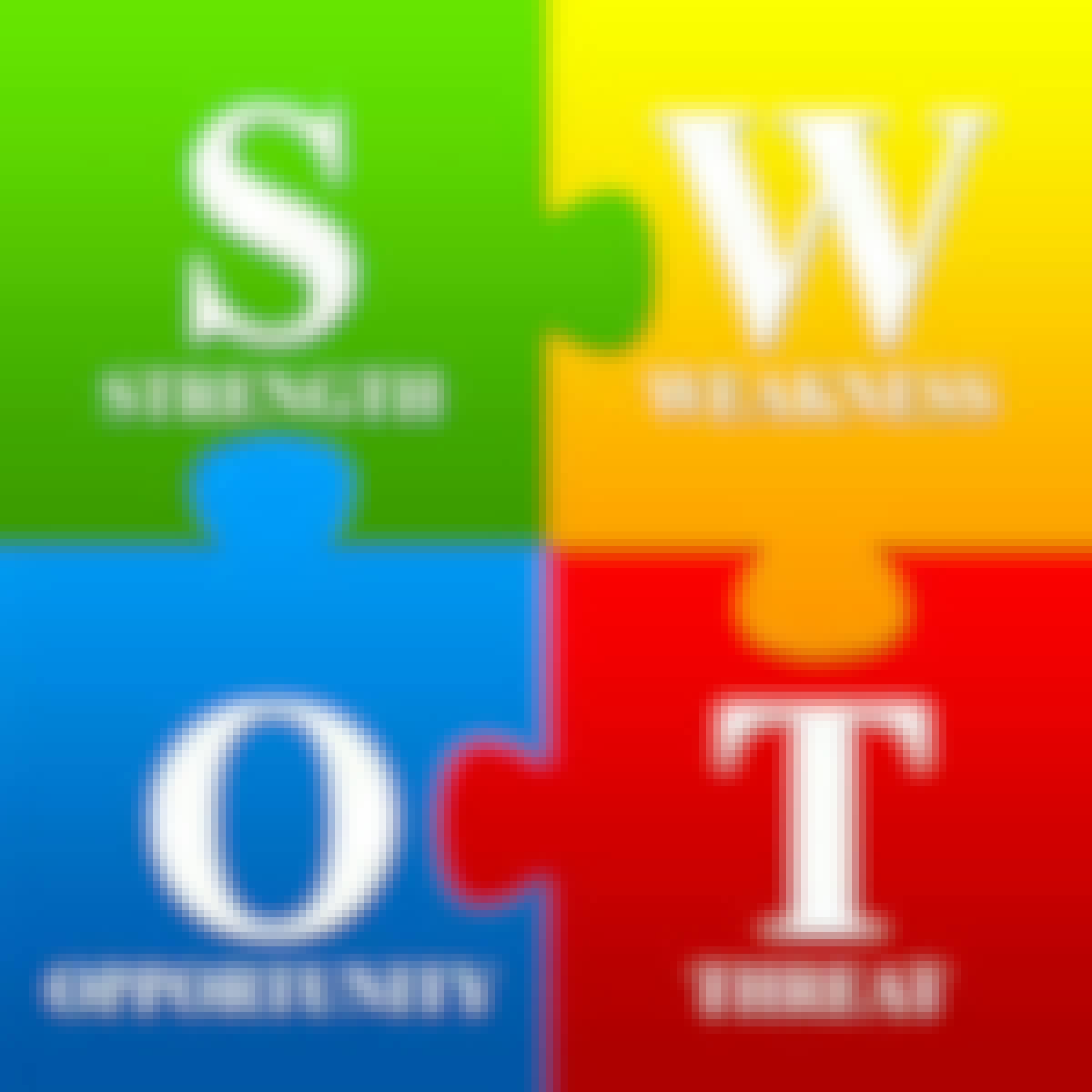- Browse
- Renewable Energy
Results for "renewable energy"
 Status: NewNewStatus: PreviewPreviewU
Status: NewNewStatus: PreviewPreviewUUniversidades Anáhuac
Skills you'll gain: Energy and Utilities, Electric Power Systems, Sustainable Engineering, Sustainable Technologies, Engineering, Environmental Engineering, Environmental Issue, Sustainable Development, Oil and Gas, Hydraulics, Economics, Policy, and Social Studies, Operational Efficiency, Case Studies
Beginner · Course · 1 - 3 Months
 Status: FreeFreeU
Status: FreeFreeUUniversity of California, Berkeley
Skills you'll gain: Environmental Engineering, Sustainable Engineering, Electronics, Civil Engineering, Manufacturing Processes, Control Systems, Manufacturing and Production, Electronic Systems, Electronic Components, Semiconductors, Sustainable Design, Engineering, Materials science, Electrical Engineering, Energy and Utilities, Computer Engineering, Climate Change Mitigation, Automation, Emerging Technologies
5·Rating, 5 out of 5 stars8 reviewsIntermediate · Course · 1 - 4 Weeks
 Status: FreeFreeU
Status: FreeFreeUUniversity of Alberta
Skills you'll gain: Cultural Diversity, Cultural Sensitivity, Environmental Issue, Environment, Advocacy, Anthropology, Natural Resource Management, Economics, Environmental Monitoring, Climate Change Adaptation, Energy and Utilities, World History, Research, Construction
4.5·Rating, 4.5 out of 5 stars42 reviewsBeginner · Course · 1 - 3 Months
 Status: Free TrialFree TrialR
Status: Free TrialFree TrialRRice University
Skills you'll gain: Pulmonology, Respiration, Anatomy, Patient Evaluation, Physiology, Pathology, Clinical Nutrition
4.8·Rating, 4.8 out of 5 stars13 reviewsIntermediate · Course · 1 - 3 Months
 Status: Free TrialFree TrialL
Status: Free TrialFree TrialLL&T EduTech
Skills you'll gain: Sustainable Architecture, Sustainable Technologies, Construction Management, Sustainable Design, Sustainability Standards, Environmental Management Systems, Sustainable Development, Construction, Building Design, Waste Minimization, Project Management, Environment and Resource Management, Energy and Utilities, Product Lifecycle Management
4.6·Rating, 4.6 out of 5 stars37 reviewsIntermediate · Course · 1 - 4 Weeks
 Status: Free TrialFree TrialA
Status: Free TrialFree TrialAArizona State University
Skills you'll gain: Electrical Systems, Basic Electrical Systems, Manufacturing and Production, Manufacturing Processes, Production Process, Energy and Utilities, Thermal Management, Sustainable Technologies, Safety Standards, Materials science, Quality Assurance, Performance Testing, Chemistry
4.8·Rating, 4.8 out of 5 stars23 reviewsBeginner · Course · 1 - 4 Weeks
 Status: Free TrialFree Trial
Status: Free TrialFree TrialSkills you'll gain: HVAC, Building Services Engineering, Equipment Design, Thermal Management, Mechanical Engineering, Facility Repair And Maintenance, Mechanical Design, Energy and Utilities, Safety Standards, Engineering Calculations, Technical Standard
4.4·Rating, 4.4 out of 5 stars11 reviewsIntermediate · Course · 1 - 3 Months

Skills you'll gain: Strategic Prioritization, Competitive Analysis, Business Priorities, Strategic Planning, Strategic Thinking, Case Studies, Business Strategy, Spreadsheet Software, Strategic Decision-Making, Market Analysis, Internal Auditing, External Auditing, Market Opportunities, Entrepreneurship, Leadership and Management
4.3·Rating, 4.3 out of 5 stars11 reviewsIntermediate · Guided Project · Less Than 2 Hours
 Status: Free TrialFree TrialA
Status: Free TrialFree TrialAArizona State University
Skills you'll gain: Chemistry, Electrical Systems, Chemical Engineering, Energy and Utilities, Electronics, Materials science, Market Trend, Manufacturing Processes
4.6·Rating, 4.6 out of 5 stars25 reviewsBeginner · Course · 1 - 4 Weeks
 Status: Free TrialFree TrialL
Status: Free TrialFree TrialLL&T EduTech
Skills you'll gain: Construction Engineering, Petroleum Industry, Building Codes, Civil Engineering, Oil and Gas, Construction Inspection, Construction, Engineering Plans And Specifications, Energy and Utilities, Electrical Systems, Mechanical Engineering, Safety Standards, Mechanical Design, Materials science, Engineering Analysis
4.4·Rating, 4.4 out of 5 stars33 reviewsIntermediate · Course · 1 - 4 Weeks
 Status: Free TrialFree TrialU
Status: Free TrialFree TrialUUniversity of Colorado Boulder
Skills you'll gain: Estimation, Engineering Calculations, Applied Mathematics, Mathematical Modeling, Engineering Analysis, Differential Equations, Physics
Build toward a degree
4.7·Rating, 4.7 out of 5 stars13 reviewsIntermediate · Course · 1 - 4 Weeks
 Status: Free TrialFree TrialI
Status: Free TrialFree TrialIIndian Institute of Technology Guwahati
Skills you'll gain: SolidWorks (CAD), Computer-Aided Design, Computer Graphics, 3D Modeling, Manufacturing Processes, Mechanical Design, Manufacturing and Production, Engineering Drawings, Visualization (Computer Graphics), Prototyping, Industrial Design, Product Engineering, Process Development, Robotic Process Automation, Simulation and Simulation Software, Materials science, Automation, Process Engineering, Mechanical Engineering, Manufacturing Standards
4·Rating, 4 out of 5 stars10 reviewsIntermediate · Specialization · 3 - 6 Months
Searches related to renewable energy
In summary, here are 10 of our most popular renewable energy courses
- Ingeniería de la energía : Universidades Anáhuac
- Master of Advanced Study in Engineering Degree Preview : University of California, Berkeley
- Arctic Peoples and Cultures : University of Alberta
- Anatomy & Physiology: Exchange and Energy: Rice University
- Green Building Assessment & Certification: L&T EduTech
- Battery Comparison, Manufacturing, and Packaging: Arizona State University
- Air Conditioning Equipment Selection, Design and Sizing: L&T EduTech
- Using Advanced SWOT Analysis to Determine Competitiveness: Coursera
- Zn and Ni Based Batteries: Arizona State University
- ASME B31 Series and Pipeline Construction: L&T EduTech










